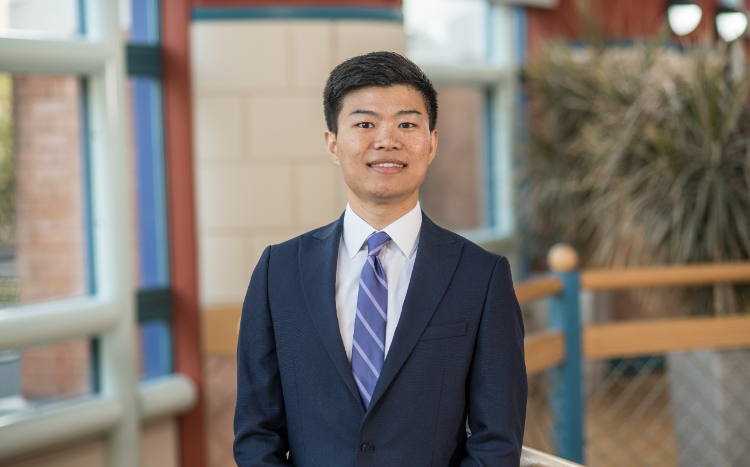That was the case for Leo Jiang. After moving from China to the US for a master's in finance, Leo spent seven years in the fast-paced world of Wall Street, working at J.P. Morgan.
But it wasn’t until he transitioned to a startup that he realized his true ambition was to build something of his own.
Eager to expand his network and prepare for the challenges of starting a business, Leo chose an MBA program that could offer him the tools he needed. Now the co-founder of Joltsynsor, a startup that uses AI to monitor and predict the health of infrastructure, Leo shares what he learned along the way.
1. Tap into a diverse network to foster innovation
For entrepreneurs, innovation often stems from exposure to different environments. Being surrounded by diverse perspectives naturally fuels fresh ideas and encourages new approaches to problem-solving.
When Leo was choosing an MBA program, diversity was a key factor in his decision. The collegiate system and entrepreneurial culture at Cambridge Judge Business School proved to offer the perfect environment.
This meant he was able to network with students from a variety of industries, gaining insight into business opportunities he might not have otherwise considered.
“Because I came from a business background, I wanted to meet people from different fields—engineering, physics, mathematics, and so on. I knew that would open my eyes to new opportunities. That’s one reason why I chose Cambridge,” says Leo.
This diversity wasn’t limited to classroom learning; it extended to networking events and entrepreneurial mixers.
One such event hosted by Cambridge Judge Business School and Cambridge Enterprise—a university incubator focused on commercializing research—proved pivotal to his career.
“Researchers pitched their ideas to an audience of MBA students. Afterwards, we had the chance to network and explore collaborations. That’s how I met my co-founder—a Cambridge professor.”
2. Immerse yourself in an entrepreneurial ecosystem
Entrepreneurship isn’t just about having a great idea—it’s also about being in the right place.
With a reputation for its entrepreneurial ecosystem, the Cambridge Cluster—known as ‘Silicon Fen’—offered more than a strong academic name.
The cluster attracted some of the world’s leading tech giants such as Apple and Microsoft and has birthed many innovative startups.
“I wanted to place myself in an environment that gave me the highest chance of interacting with other startup entrepreneurs,” says Leo.
The numbers speak for themselves: In 2024, University of Cambridge students and alumni have raised nearly half of the 62 venture capital funding rounds for startups within the cluster.
Having met his co-founder, Leo could set up his company while still pursuing the Cambridge MBA.
“The value of the MBA isn’t just what you learn in the classroom. It’s in the people you meet, the conversations you have, and the amazing ideas that come from those interactions,” he said.
Since graduating in 2023 and relocating to London, Leo has kept his company rooted in Cambridge.
“Cambridge is an incredible place to start a business. There’s a lot of opportunities for VC funding, and it’s a hub for great talent. In Cambridge, it’s easy to attract the best people you need to grow a company.”
3. Soft skills go a long way in business
While technical expertise and industry knowledge are essential for building a business, soft skills—communication, leadership, and teamwork—often set successful entrepreneurs apart.
For Leo, the Cambridge MBA gave him the space to sharpen those tools. After entering the program with a strong financial background, he quickly learned that effective communication for diverse audiences was just as critical to entrepreneurial success.
“In the finance world, I worked with people who spoke the same language as me. But as an entrepreneur, I had to learn to tailor my communication for people from different backgrounds.
“Often, it’s not that people don’t appreciate your idea—they just don’t understand it.”
This realization came early in his MBA. From attracting the right talent to pitching investors, these soft skills would become crucial to his entrepreneurial journey.
“The Cambridge MBA equips you with the hard skills in finance and accounting that you need for fundraising, talking to investors, and managing the cash flow. But beyond technical knowledge, it’s your soft skills that determine the kind of founder you’re going to be.
“The quality of your soft skills translates to how you lead your team, find the right co-founder, deliver your ideas, public speaking, and convince investors to support your vision. The Cambridge MBA provided me with the opportunity to sharpen those skills,” he concludes.









